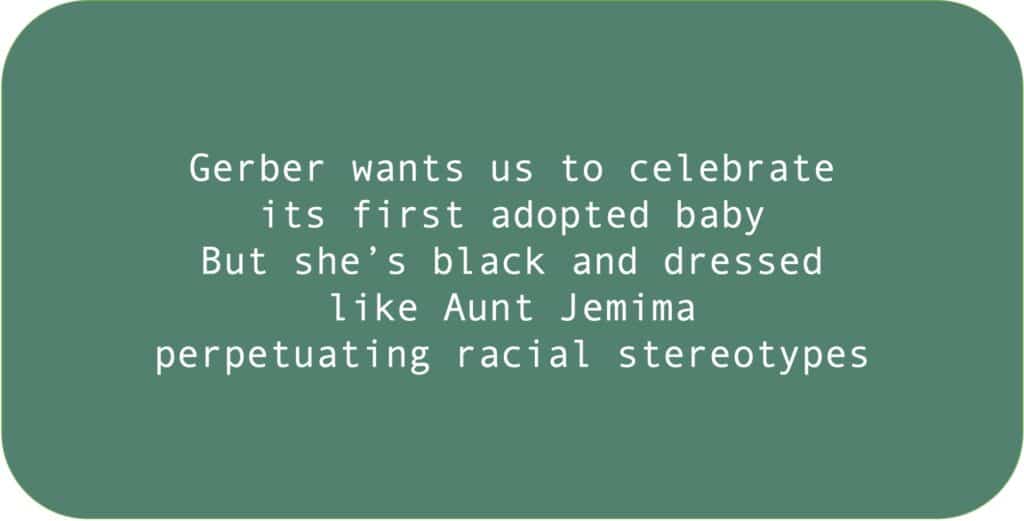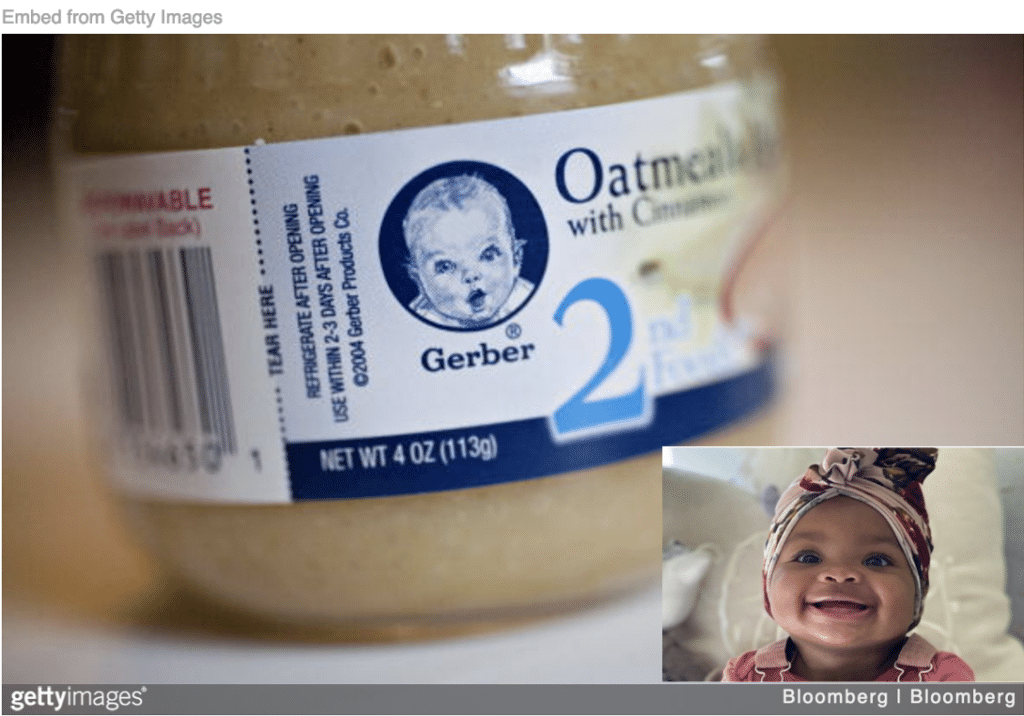
Kudos to Gerber for featuring and celebrating an adopted baby. But why dress her up to look a little Aunt Jemima? And don’t get me started on her (adoptive) parents being White!
Black Gerber Baby
Magnolia Earl, who recently celebrated her first birthday, just made history as the first adopted baby to be the Gerber company’s spokesbaby, a tradition that dates back to 1928.
Proud parents, Courtney and Russell Earl, adopted Magnolia on May 9, 2019 after waiting on the special call for six months.
(ABC News, May 8, 2020)
If you’re wondering, she’s not the first Black Gerber baby. Reports vary on who has that distinction. But Melanie Andrews became one of the first Black Gerbers babies in 1968. Her parents were Black. And, more to the point, they never saw any need to adorn her head with an Aunt Jemima scarf.

Still, I appreciate the Earl family adopting her. This appreciation is doubled, given that it’s also a transracial adoption. And it looks like they will give her a loving home.
But here’s a black tip: stop scarfing that poor child’s head unless it’s medically necessary!
‘Who is Aunt Jemima?’
F*cking millennials!
They walk around all day staring at prehensile phones. And it would take just a few taps to find out who she is. So why bother me with that stupid question?
A millennial in my family explained that asking this question is their way of initiating inter-generational communication. That was so endearing I couldn’t resist. But God help us if closing the perennial generation gap depends on posing such clueless questions.
Anyone familiar with the racial implications of the Aunt Jemima stereotype will appreciate my dismay. Of course, there are racial implications even in Gerber choosing a Black baby to be its first adopted baby. After all, that feeds into stereotypes of the broken Black family.
Still, I’m prepared to give her white parents a pass for a past faux pas. But it would smack of willful, black-doll tokenism if they continue presenting her as a racial stereotype.
Meanwhile, the name Magnolia conjures up imagery of Southern folksiness. Black folks thought that was “gone with the wind.” So this rubs us the wrong way. I would bet good money that you don’t know any Black person named Magnolia. I’m just sayin’.
Still, we’ve come a long way, baby. After all, I had to disabuse Black folks of their misguided concerns about transracial adoptions in “Madonna and (Black) Child: Why All the Fuss?” on October 18, 2006.